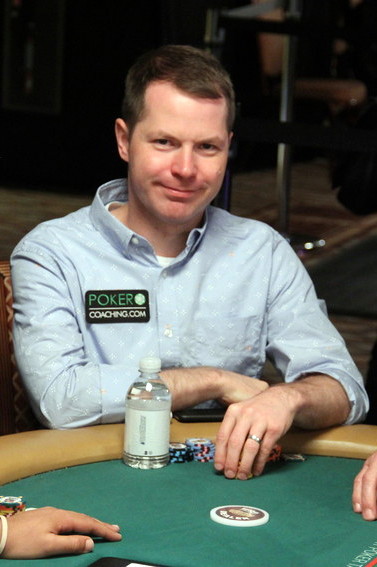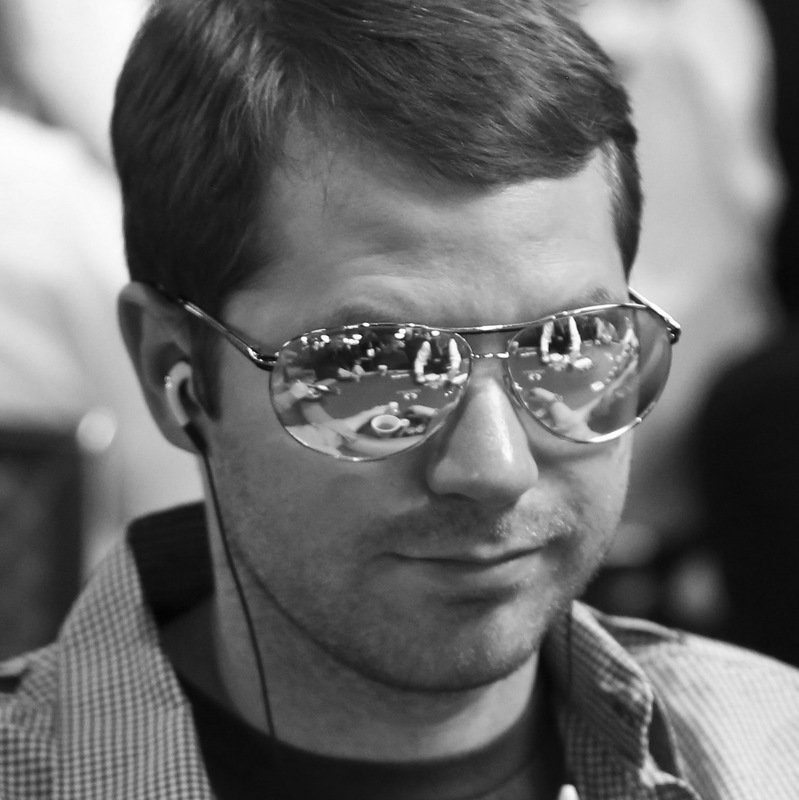






Should You Go Pro?by Jonathan Little | Published: Jun 03, 2020 |
|
|
Card Player Magazine, available in print and online, covers poker strategy, poker news, online and casino poker, and poker legislation. Sign up today for a digital subscription to access more than 800 magazine issues and get 26 new issues per year!

Jonathan Little
As with most questions related to poker, the answer is, “It depends.”
Let’s assume you play $2-$5 no-limit hold’em at a local card room (I realize you may be forced to play online at the moment due to the virus, but this example still applies), which is about the stakes most people play who ask this question. $2-$5 is the largest game that runs on a regular basis in most local card rooms and most players who can beat this game feel like they are decently good at poker.
Let’s assume you make $50 per hour. When I played $5-$10 at Bellagio eight years ago, over the course of a year playing about 50 hours each week, I made around $100 per hour. Ten big blinds per hour is a solid win rate that most excellent players can achieve as long as the games are decently soft and the rake is not too high. So, if you play 40 hours per week, you will make around $8,000 per month at $2-$5, which sounds great, at least initially.
There are a few problems with this nice $96,000 per year salary. First, few people actually want to play 40 hours per week. I found myself constantly wanting to take days off or cut sessions short because I simply did not enjoy sitting at the table for that many hours. Many players feel a desire to take time off either when they are winning or losing. Because of this, you will probably only be able to average 30 hours per week. You are now looking at $72,000 salary.
Next, you have to pay taxes. Assuming you pay 20 percent or so, you will actually bring home $57,600, which still isn’t too shabby. You will probably need to buy health insurance, which will cost around $250 per month, reducing your disposable income to $54,600 each year. While this doesn’t sound too bad, you also need to set aside money for retirement, which will set you back around $10,000 per year, though you will eventually get that back at some point. This will leave you with about $45,000 per year to live on while also trying to grow your bankroll.
In my opinion, it is short-sighted to try to become a professional poker player without at least a year’s worth of living expenses set aside and a nice bankroll, at least 5,000 big blinds for no-limit hold’em cash games, or 100 buy-ins for tournaments. So, if you spend $3,000 each month on routine expenses, you need at least $60,000 before even considering becoming a $2-$5 pro. I know this sounds like a lot, but if you want to be safe, especially since you are not sure if you have the required skills to be a pro, it is the prudent decision.
There are numerous factors that should influence your decision to become a professional player. If you have a family, your expenses will be much more than a single person, and the expenses will probably increase as time goes forward, especially if you have young children. You will also find it hard to justify putting in numerous hours at the table while you are missing your kids grow up. This will often result in playing during non-peak hours, which will cut your win rate.
If you currently have a “normal” job that pays well, you will also have a tough time justifying the move to poker. If you make $40 per hour at your job, which provides a nice, secure paycheck, there is really no reason to rely on poker, even if your actual hourly rate may be slightly higher. There is a lot of value in having no variance to your monthly income, even if it is not exciting and you have to report to a boss you may not especially like.
One thing most players don’t consider when going pro is that you may not be as good as you think you are. If you do not have a long track record of winning, you should not even consider quitting your job. I estimate that you need at least a 500-hour sample in the game you plan on playing before attempting to go pro. These 500 hours will also have let you grind up an adequate bankroll for the game. Ideally, this trial period will let you know if you enjoy playing poker and also roughly what your win rate is. I also suggest you diligently study my in-depth book, Mastering Small Stakes No-Limit Hold’em.
You may find you love poker as a hobby, but not as a job. Before actually quitting your job, take some vacation time away from your job and play poker as you would if you were a professional. This will give you a sense of what it feels like to play poker every day. Compared to playing recreationally, playing poker professionally requires a drastically different mindset.
You may have noticed that I did not mention becoming a professional tournament player. This is because it is quite difficult to put in enough time at the table to give you a steady sizable return. Also, small-stakes tournaments in most local casinos are only barely profitable due to poor structures and high rake.
For example, if you can play a $200 buy-in + $30 rake tournament at your casino every day that has a relatively fast structure, you may win something like $50 per game. If each tournament takes four hours on average, you will win $5 per hour ($50 per game – $30 rake). Even if your tournament is incredibly soft, you may win at the rate of $20 per hour, which is about as much as a great player will win at $1-$2 cash games.
Putting in four hours per day playing a tournament with a win rate of $20 per hour will not make you rich. Since most casinos don’t have daily $500 buy-in or larger tournaments, I suggest you devote your time to cash games when you are initially considering going pro. Playing tournaments only becomes a reasonable idea when the buy-ins become very large, assuming the fields remain soft, because then, you can expect to have a high hourly rate.
In the end, if someone hates their 9-to-5 job and wants to play poker, they are probably going to give it a try. Do your best to make sure the decision is the correct one because if you’re wrong, you may squander a lot of time and a lot of money. If you decide to make the leap, let me know on Twitter @JonathanLittle. Good luck! ♠

Jonathan Little
Features
The Inside Straight
Strategies & Analysis